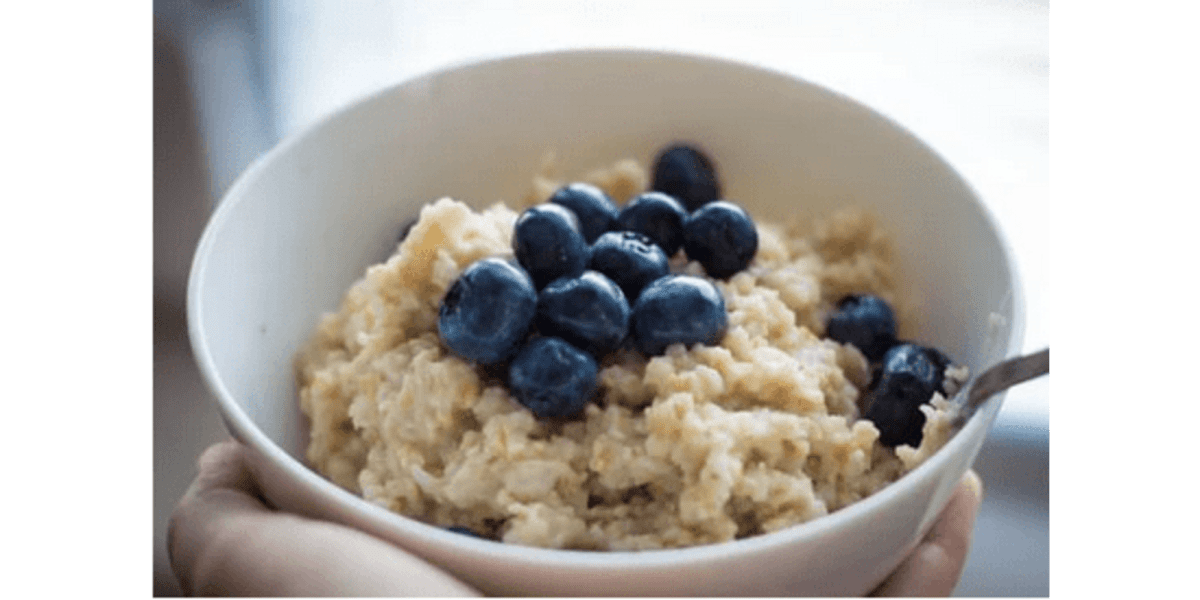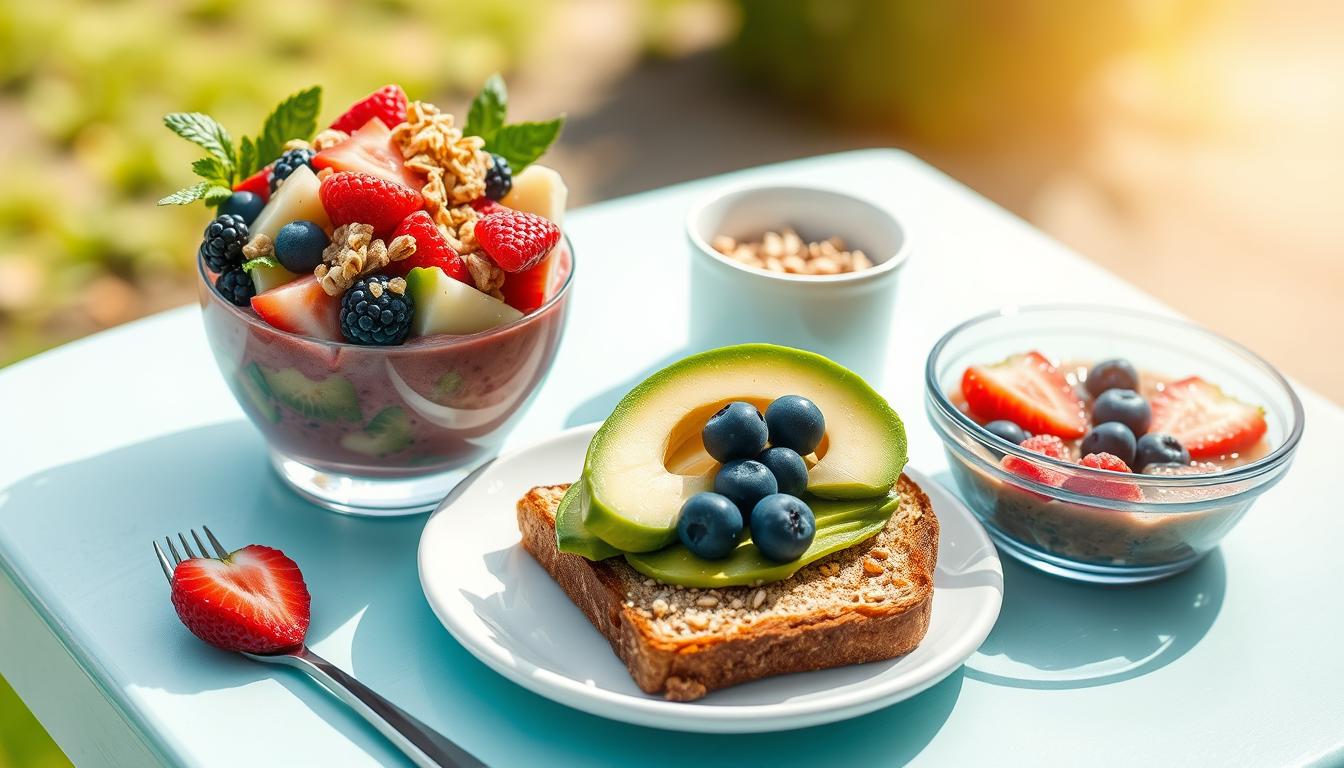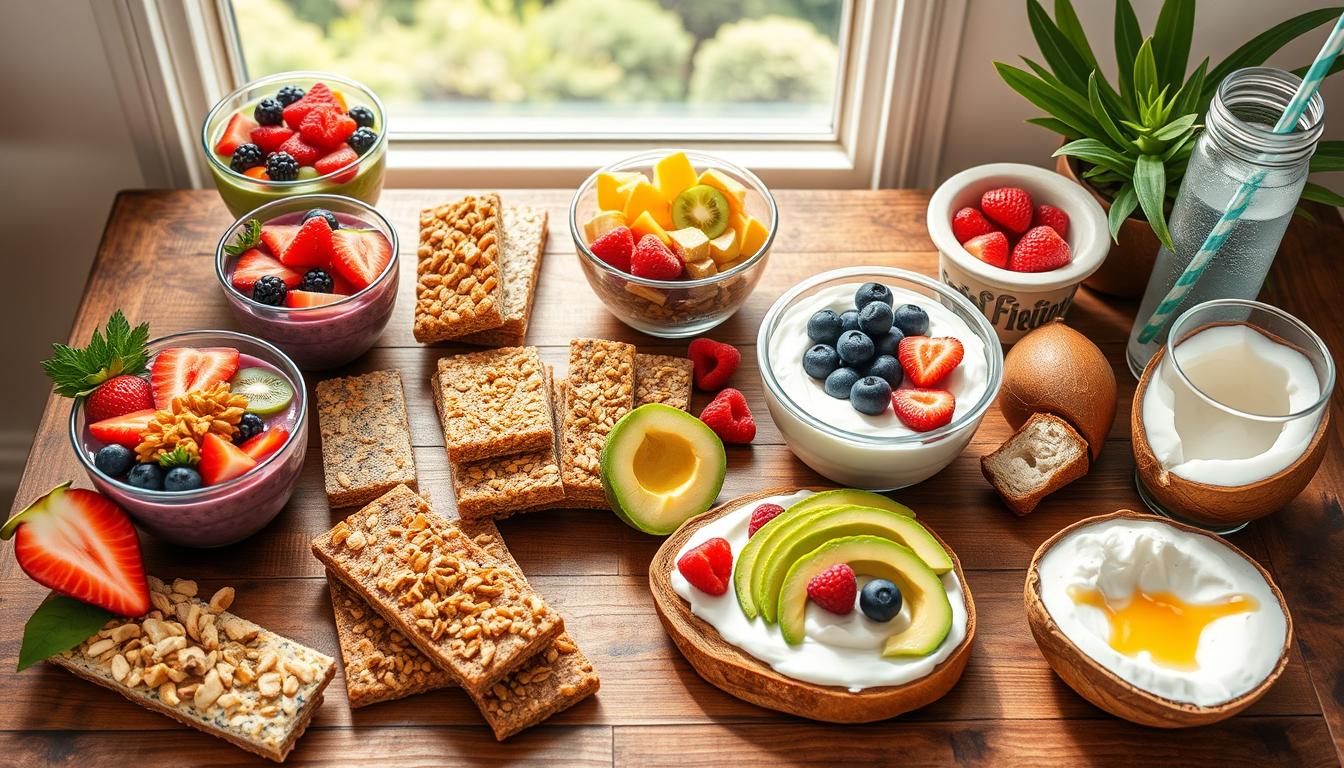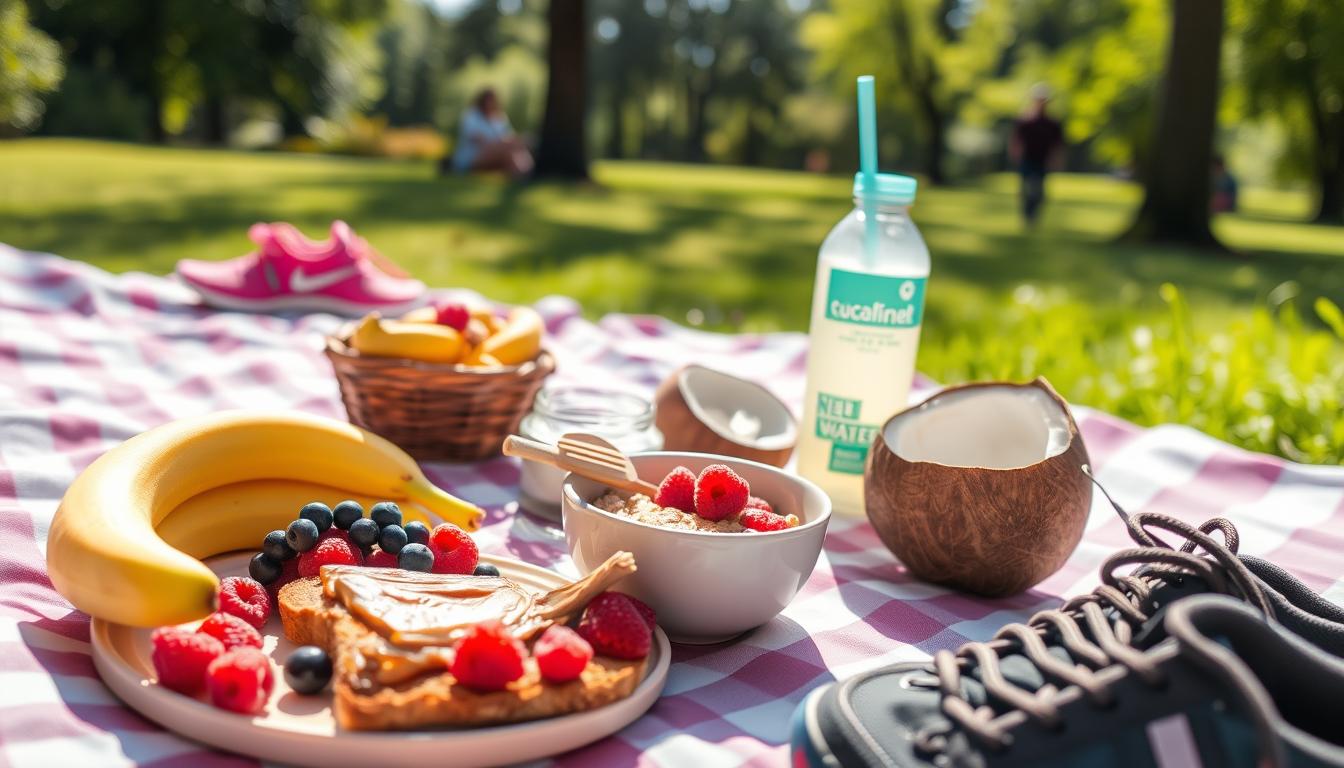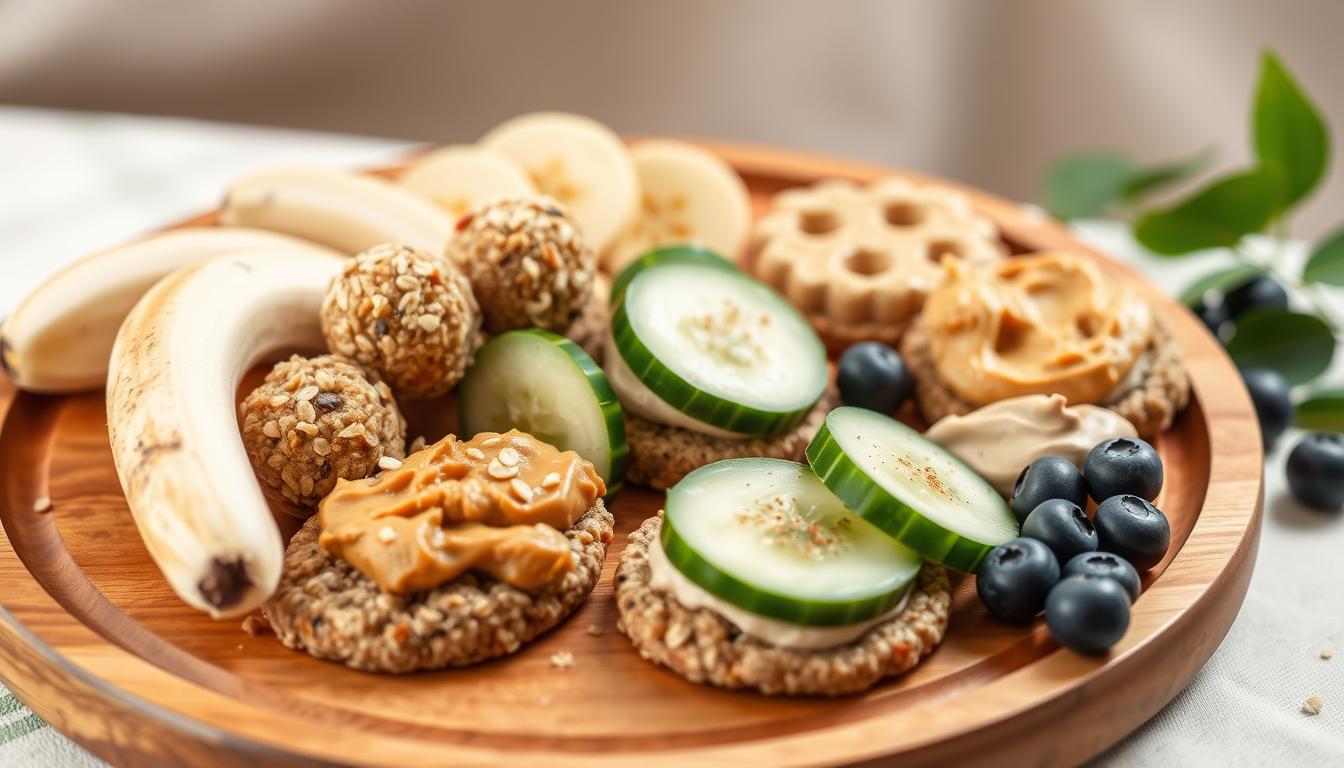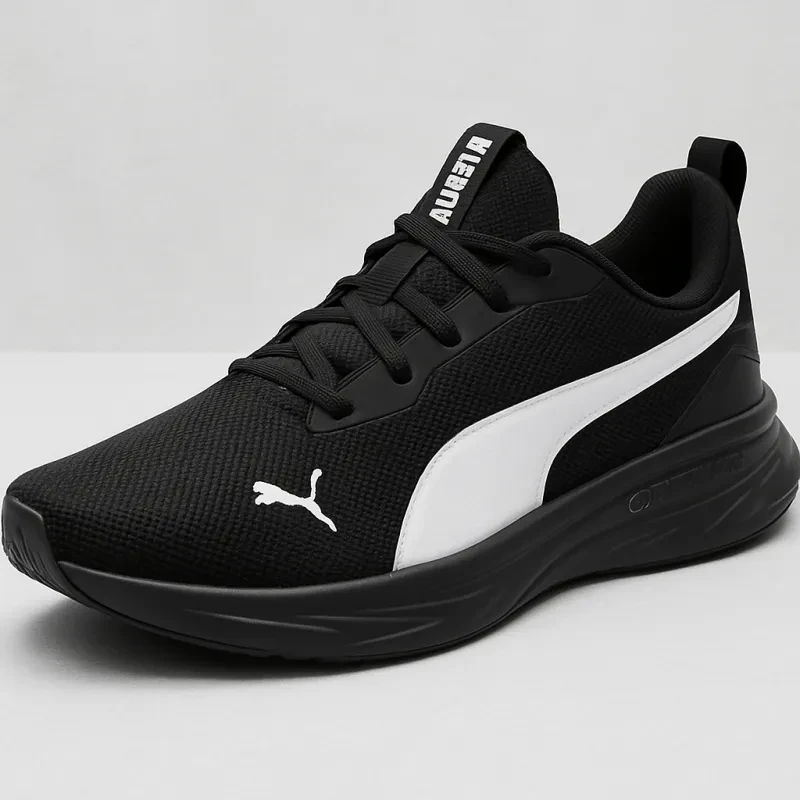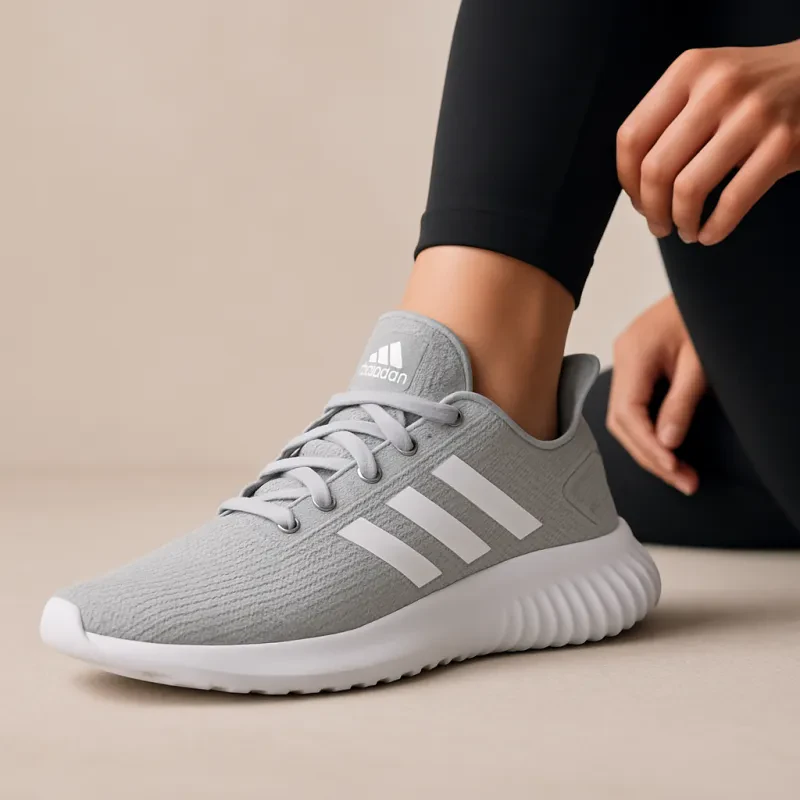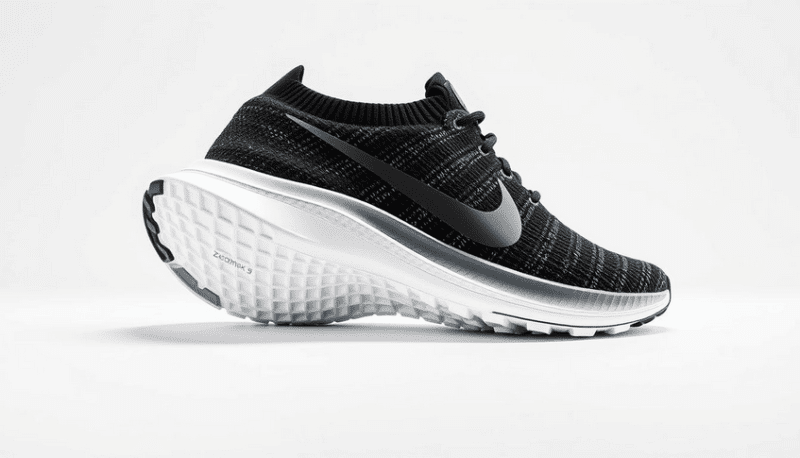For runners, eating right and staying hydrated is key. A good diet should have carbs (60-65% of calories), protein (10-35%), and fats (20-35%). Carbs are the top energy source, with whole grains being better because they're more nutritious.
Protein is vital for fixing muscles after workouts. Runners need 1.2 to 1.4 grams of protein per kilogram of body weight every day. It's also important when to eat before running. A light meal 1.5 to 2 hours before is best, or a small snack 30 minutes to an hour before.
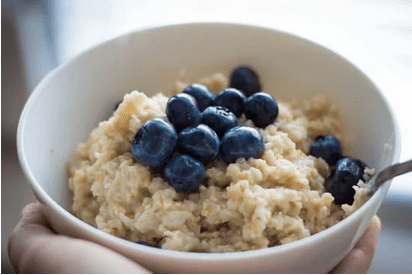
Key Takeaways
- Carbohydrates are the primary fuel source for runners, providing essential energy for training and races.
- Protein helps repair muscle damage and supports recovery, with specific intake recommendations for runners.
- The timing of pre-run meals is crucial. A light meal 1.5-2 hours before or a small snack 30-60 minutes before is recommended.
- A balanced diet with whole grains, lean protein, and healthy fats can help maintain energy levels for optimal performance.
- Proper pre-run fueling can prevent gastrointestinal issues and support sustained energy throughout the workout or race.
Understanding Pre-Run Nutrition Basics
As a runner, it's key to fuel your body properly for top performance and recovery. Carbohydrates are at the core of pre-run nutrition. They are the main energy source for your muscles during exercise.
The Role of Carbohydrates in Running Performance
Carbohydrates are stored in your muscles as glycogen. Your body uses this stored energy to power your runs. During exercise, your body uses a mix of fat and carbohydrates for fuel. But carbs are the better choice for quick energy.
It's important to consume enough carbohydrates. This helps you run longer without getting tired too soon.
Timing Your Pre-Run Meals
What you eat before running is just as important as when. For a big meal, eat 2-4 hours before running. This lets your body digest and absorb the food well.
For shorter runs or snacks, eat 1-2 hours before. This gives your body enough time to get ready.
Importance of Proper Fueling
Proper fueling is key for runners to avoid fatigue and recover well. The right food and amount depend on how intense and long your run is. Eating carb-loading snacks and high-energy meals is crucial for tough workouts and races.
Adding metabolic-boosting foods and following a runner's meal prep routine helps ensure you're fueled for your runs.
https://youtube.com/watch?v=34zG7LFdwq0
"Timing your pre-run meals and snacks is crucial for optimizing your running performance and supporting recovery."
Simple Pre-Run Meals that Won't Weigh You Down
As a runner, you need the right food before a workout. You want to stay energized and perform well. Look for lightweight meals for runners that are easy to digest. Choose foods high in carbs, with some protein and healthy fats.
A good pre-run meal has protein, carbs, veggies, fruits, and healthy fats in balance. Easy pre-workout snacks like energy balls or fresh fruit give a quick energy boost. They are perfect for a quick snack before running.
Choose low-GI foods for your main meal before running. They give slow energy that lasts during your workout. Good choices include:
- Whole grains (e.g., oatmeal, quinoa, brown rice)
- Lean proteins (e.g., grilled chicken, eggs, tuna)
- Fresh fruits (e.g., bananas, berries, citrus fruits)
- Low-fat dairy (e.g., Greek yogurt, cottage cheese)
- Nut butters (e.g., peanut butter, almond butter)
Avoid high-fiber veggies, spicy foods, and high-fat meals before running. They can upset your stomach. Try different lightweight meals for runners to see what works for you.
"Consistency in pre-race morning fueling is essential for optimal performance, with race day meals ideally being the same as regular training session meals."
The goal is to eat energizing foods for exercise that give lasting energy without feeling heavy. With easy pre-workout snacks and portable pre-workout nourishment, you'll be ready for your next run.
Quick and Light Breakfast Options for Morning Runners
Morning runners must start their day with a nutritious snack or light breakfast. These quick and easy options give you the energy and nutrients you need and won't slow you down before your run.
Whole Grain Toast Combinations
Try whole grain toast with peanut butter and banana or avocado and tomato. These combinations offer carbs, healthy fats, and proteins. They're perfect for a quick, balanced start to your day.
Fruit-Based Energy Boosters
Try a fruit smoothie or a small fruit salad for a quick energy boost. Fruits provide natural sugars and fiber, making them great high-carb portable snacks for your morning run.
Light Protein Options
Consider a small Greek yogurt with berries or a couple of hardboiled eggs. They provide protein for muscle recovery and growth. These light protein options are easy to make and won't weigh you down.
Finding the right mix of carbs, proteins, and healthy fats in your pre-workout meal is important. This balance helps you stay energized and avoids stomach issues during your run.
Afternoon Running Fuel Strategies
Timing your pre-run nutrition is key, especially for afternoon runs. An ideal lunch 2-3 hours before your workout is a light, runner-friendly lunch that gives you the right fuel without making you feel heavy. Choose complex carbohydrates and lean proteins to keep your energy up during the run.
Good choices include a turkey sandwich on whole grain bread, a small pasta dish with veggies, or a quinoa bowl with grilled chicken. These light pre-exercise bites help with carb-loading without upsetting your stomach.
If you're running right after work, a small snack like a banana with almond butter or trail mix can boost your energy. It won't upset your stomach.
Don't forget to drink water all day before your run. Proper runner-friendly nutrition and staying hydrated are crucial for a great training session.
"Fueling your body with the right nutrients before an afternoon run can make all the difference in your performance and recovery."
Foods to Avoid Before Running
Before you hit the road, it's smart to avoid certain foods. High-fat foods like fried foods, cheese, and bacon can make you feel heavy. They also take longer to digest, which might cause discomfort during your run. Caffeine and dairy can upset some runners' stomachs too.
High-Fat Foods to Skip
Rich, heavy meals with lots of fat can make you feel slow and uncomfortable. Avoid fried foods, greasy burgers, and creamy sauces. Choose leaner proteins and complex carbs instead. They're easier to digest.
Problematic Fiber Sources
While fiber is good for you, some foods like broccoli, Brussels sprouts, and beans can cause gas and bloating. Before running, eat low-fiber foods like bananas, white rice, or plain bagels. They're better for your stomach.
Trigger Foods for Digestive Issues
Spicy foods and alcohol can also upset your stomach before running. They can irritate your digestive system and cause discomfort. To stay comfortable, it's best to avoid these foods before a run.
Being careful with what you eat before running can improve your experience. Stick to foods that are easy to digest. This will allow you to run smoothly and perform well.
Easy-to-Digest Snacks for Short Runs
For short runs under an hour, light snacks 30-60 minutes before can fuel you well. Choose quick carb-protein combos like fruit, a small energy bar, or toast with jam. These snacks give you carbs to run without upsetting your stomach.
If eating before morning runs is hard, try pre-run nutrition hacks. Eat more carbs at dinner to save energy for the next day. For runs over 90 minutes, a light meal 30-120 minutes before can add fuel. Just pick something easy on your stomach.
Trying different portable runner's meal prep can find the best snacks for short runs. Look for snacks that are easy to digest and full of carbs. This way, you get the energy you need without feeling weighed down.
DISCLAIMER
The information contained on Save on Sneaks and our related pages is provided for entertainment and informational purposes only. It is not intended as a substitute for the advice of or treatment that may be prescribed by your physician or other health care provider.
Understand that you are solely responsible for the way this information is perceived and utilized, and do so at your own risk. In no way will Save on Sneaks be responsible for injuries or other problems that might occur due to the use of this website or any actions taken based on the content of this website. Save on Sneaks will not be held responsible for the conduct of any companies and web sites recommended within this site.
Before adhering to any of the information or recommendations or undertaking any exercise program or diet regimen, you should consult your physician.
